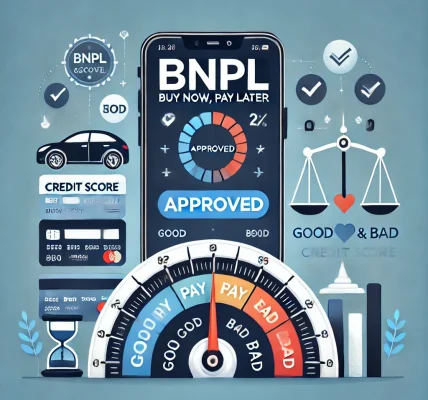Introduction
Managing personal finances effectively is crucial for financial stability and achieving long-term goals. Whether you want to track your expenses, set financial goals, or save for the future, budgeting apps can be powerful tools to help you stay on track. In this blog, we will explore some of the best budgeting apps available, their features, pros, and cons, and how they can help you take control of your finances.
Why Use a Budgeting App?
Budgeting apps simplify financial planning by offering features such as expense tracking, bill reminders, goal setting, and investment tracking. The key benefits include:
- Automated Expense Tracking: Easily categorize and monitor where your money is going.
- Financial Goal Setting: Set and track progress towards savings, debt repayment, or investment goals.
- Spending Insights: Get personalized insights and reports to improve your financial habits.
- Syncing with Bank Accounts: Many apps sync with bank accounts and credit cards for real-time financial updates.
- Debt Management: Track debts and create a payoff strategy to become debt-free faster.
Now, let’s explore the best budgeting apps to help you manage your finances effectively.
1. Mint
Best for: Comprehensive budgeting and expense tracking
Mint is one of the most popular budgeting apps, offering real-time tracking, bill reminders, and credit score monitoring. It connects with your bank accounts, credit cards, and loans to provide a complete financial picture.
Features:
- Automatic transaction categorization
- Bill payment reminders
- Free credit score monitoring
- Custom budget setting
- Investment tracking
Pros: ✔ Free to use ✔ Detailed spending insights and alerts ✔ Syncs with multiple financial institutions
Cons: ❌ Ads and product promotions can be intrusive ❌ Some syncing issues with certain banks
2. YNAB (You Need A Budget)
Best for: Zero-based budgeting and proactive money management
YNAB uses a zero-based budgeting system, where every dollar is assigned a job, helping users gain complete control over their money.
Features:
- Zero-based budgeting system
- Bank account and credit card syncing
- Real-time financial tracking
- Goal setting and debt payoff strategies
Pros: ✔ Helps users break the paycheck-to-paycheck cycle ✔ Strong customer support and educational resources ✔ Encourages long-term financial discipline
Cons: ❌ Requires a subscription ($14.99/month or $99/year) ❌ Learning curve for new users
3. PocketGuard
Best for: Preventing overspending
PocketGuard simplifies budgeting by showing users how much disposable income they have after covering bills, necessities, and savings goals.
Features:
- “In My Pocket” feature to display available spending money
- Bill negotiation services
- Automatic categorization of transactions
- Expense tracking and spending insights
Pros: ✔ Easy-to-use interface ✔ Helps prevent overspending ✔ Offers financial security insights
Cons: ❌ Free version has limited features ❌ Some bank syncing issues
4. GoodBudget
Best for: Envelope budgeting method users
GoodBudget is based on the traditional envelope budgeting system, where users allocate funds to different spending categories (envelopes) to control their expenses.
Features:
- Virtual envelope system for budgeting
- Syncs across multiple devices
- Debt tracking and financial goal setting
- Manual expense entry for better spending awareness
Pros: ✔ Simple and effective budgeting approach ✔ Ideal for couples and family budgeting ✔ Free plan available
Cons: ❌ No bank account syncing; requires manual transaction entry ❌ Limited free plan; premium version costs $7/month or $60/year
5. EveryDollar
Best for: Dave Ramsey fans and zero-based budgeting
EveryDollar, created by financial expert Dave Ramsey, follows a zero-based budgeting system to help users plan their finances with precision.
Features:
- Manual and automated transaction tracking
- Custom budget categories
- Bill tracking and reminders
- Goal setting for debt repayment
Pros: ✔ Easy to use with a straightforward interface ✔ Encourages disciplined money management ✔ Supports Ramsey’s Baby Steps method for financial freedom
Cons: ❌ Free version lacks bank syncing ❌ Premium version is expensive ($12.99/month or $79.99/year)
6. Personal Capital
Best for: Investment tracking and wealth management
Personal Capital is a budgeting app with a strong focus on investments, net worth tracking, and retirement planning.
Features:
- Net worth and investment tracking
- Retirement planning tools
- Expense and income tracking
- Free financial planning resources
Pros: ✔ Ideal for investors ✔ Free investment and retirement planning tools ✔ Detailed financial insights
Cons: ❌ Not a traditional budgeting app ❌ Focused more on high-net-worth individuals
Choosing the Right Budgeting App for You
The best budgeting app depends on your financial goals and personal preferences. Here’s a quick guide:
- For Comprehensive Budgeting: Mint
- For Zero-Based Budgeting: YNAB or EveryDollar
- For Preventing Overspending: PocketGuard
- For Envelope Budgeting: GoodBudget
- For Investment and Net Worth Tracking: Personal Capital
Conclusion
Using a budgeting app can be a game-changer in taking control of your finances. Whether you need help tracking expenses, saving money, or investing for the future, these apps offer powerful features to make financial management easier.
By choosing the right app that fits your needs, you can build better financial habits, reduce unnecessary expenses, and work toward a more secure financial future.



